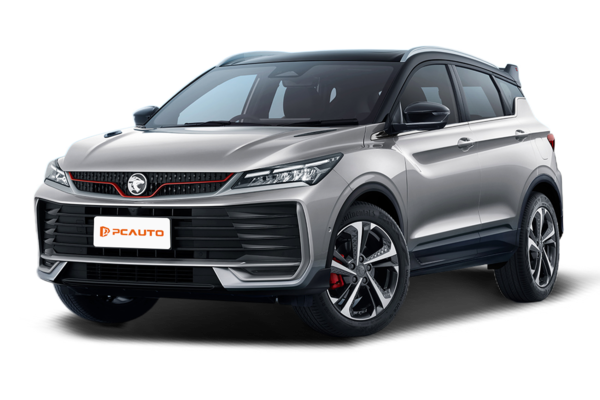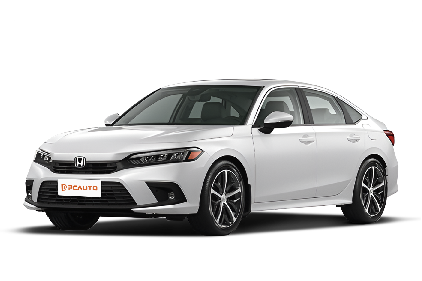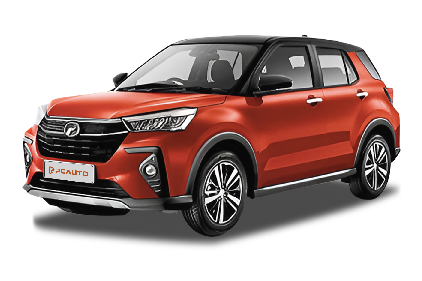Q
How much does a battery cost for a 2020 Nissan Altima?
The battery price for the 2020 Nissan Altima in Malaysia typically ranges from around RM400 to RM800. The exact cost depends on the battery type, brand, and where you buy it. Original equipment (OE) batteries usually come with a higher price tag but include a warranty, while third-party brands like Panasonic, Bosch, or Varta often offer better value for money, though their warranty periods might be shorter.
Additionally, battery specifications such as capacity (generally 60Ah to 70Ah) and cold cranking amps (CCA) also play a role in pricing. It's advisable for owners to choose a battery that suits their driving habits and local climate conditions. For instance, Malaysia's hot and humid weather calls for a battery with good high-temperature resistance.
Regularly checking your battery's health and ensuring the charging system is functioning properly can help extend its lifespan. If you notice difficulties starting the car or dimming headlights, have the battery tested promptly to avoid getting stranded due to a battery failure.
Special Disclaimer: This content is published by users and does not represent the views or position of PCauto.
Popular Models
Latest Q&A
Q
Which oil is the best oil for Camry 2019?
For the 2019 Toyota Camry, the factory recommends using 0W-20 or 5W-20 synthetic motor oil. Both viscosities deliver solid cold-start protection and high-temperature stability in Malaysia's climate. The 0W-20 particularly excels in fuel efficiency and engine protection, making it ideal for the frequent stop-and-go of city driving, while 5W-20 has a slight edge during heavy-load or long-distance trips. When choosing oil, prioritize brands with API SP or ILSAC GF-6 certifications—think Toyota Genuine Oil, Shell Helix Ultra, or Castrol EDGE. These products do a great job cutting down on carbon buildup and extending engine life. It's worth noting that the Camry's 2.5L Dynamic Force engine uses direct injection, which demands cleaner oil, so sticking to the 10,000 km or 6-month oil change interval is crucial. Malaysia's hot, humid weather can speed up oil degradation, so if you mostly do short drives, consider shortening that interval to 8,000 km. Also, the quality of the factory oil filter directly affects filtration performance, so it's smart to replace it whenever you change the oil. For cars with over 80,000 km on the clock, check with a professional technician about whether you need to adjust the oil viscosity or add an engine protectant.
Q
How much does it cost to replace a 2019 Toyota Camry transmission?
In Malaysia, replacing the transmission on a 2019 Toyota Camry will typically set you back between RM15,000 and RM30,000. The exact price hinges on a few key factors: whether you're dealing with a conventional automatic transmission or the hybrid system's gearbox, the choice between brand-new OEM parts versus remanufactured ones, and of course, the labor costs at the repair shop. Going with genuine parts and an authorized service center usually means higher bills, but you get the peace of mind that comes with a warranty. Third-party workshops might offer more budget-friendly options, but it's crucial to vet their reputation carefully – you don't want to save a few ringgit now only to face bigger issues later.
The transmission is the heart of your car, so proper maintenance goes a long way. Regular transmission fluid changes and avoiding aggressive driving can significantly extend its lifespan. If you start noticing rough shifts, delays when accelerating, or strange noises, don't ignore them – getting it checked promptly can prevent minor problems from snowballing into costly repairs. Malaysia's hot and humid weather can also speed up fluid degradation, so I recommend sticking to a service interval of 60,000 to 80,000 kilometers, or whatever Toyota specifies in the owner's manual.
When shopping around for repair services, take the time to compare quotes from different shops. Always ask about the source of their parts and get clear details on any warranty terms. A little homework upfront can help you strike the right balance between quality and value for money.
Q
Are there any recalls on 2019 Toyota Camrys?
Back in 2019, Toyota Malaysia issued a recall for certain Camry models over potential issues. The main concerns were a faulty fuel pump that could cause the engine to stall while driving, and some vehicles needing an electric power steering system software update to ensure the stability of the steering assist function. Owners could check their specific recall status by entering their Vehicle Identification Number (VIN) on the UMW Toyota Motors website.
Malaysian Camry owners should make it a habit to check UMW Toyota's official announcements regularly or head to an authorized service center to confirm their vehicle's status. Remember, car recalls are a routine part of manufacturers taking responsibility for consumers, typically covering safety-related components like airbags, braking systems, or electronic devices.
If your vehicle is part of the recall, UMW Toyota will provide a free inspection and repair service, which usually takes about 1-2 hours to complete, so it shouldn't disrupt your daily driving too much. For second-hand owners, it's a good idea to update your ownership details through the MyEG or JPJ systems to ensure you receive recall notifications promptly. Also, all authorized Toyota service centers in Malaysia are equipped with standardized diagnostic tools to handle recall items efficiently.
One thing to note: when you take your car in for regular maintenance, don't hesitate to ask the technicians about any potential technical updates for your vehicle. Sometimes, there might be software tweaks that improve driving experience but aren't released as separate recall notices.
Q
What kind of engine is in the 2019 Camry?
For the Malaysian market, the 2019 Toyota Camry primarily offers two engine options: a 2.5-liter four-cylinder naturally aspirated unit (codenamed A25A-FKS) and a 3.5-liter V6 naturally aspirated powerplant (codenamed 2GR-FKS). Both mills feature Toyota's latest Dynamic Force technology, which optimizes fuel efficiency without skimping on power delivery. The 2.5L puts out around 203 horsepower, while the 3.5L V6 cranks things up to a healthy 301 horsepower. Mated to an 8-speed automatic transmission, they deliver a smooth, refined driving experience.
What's really noteworthy about Dynamic Force tech is how it uses a high compression ratio and rapid combustion design to boost fuel economy significantly – a big plus for Malaysian buyers who really value good fuel efficiency. On top of that, the Camry comes with selectable drive modes – Eco, Normal, and Sport – so you can tailor the driving feel to different road conditions and your mood that day.
For Malaysian drivers, the Camry's engines strike a great balance: plenty of power when you need it, legendary Toyota reliability, and relatively low maintenance costs. It's a solid all-rounder, equally at home for daily commutes or longer highway drives. And if you're even more focused on fuel savings, keep an eye out for the Camry Hybrid. It pairs a 2.5-liter four-cylinder with an electric motor for even better mileage.
Q
How much should I pay for a 2019 Toyota Camry?
If you're looking at a used 2019 Toyota Camry in Malaysia, prices can vary pretty widely depending on a few key factors: overall condition, mileage, trim level, and even where you're shopping. Right now, you're probably looking at a ballpark range of RM110,000 to RM140,000. A low-mileage, well-maintained top-spec model might even creep close to RM150,000, while base variants or those with higher km on the clock will naturally be more budget-friendly. My advice? Hit up used car platforms or dealerships to get specific quotes, and *definitely* don't skip checking the service records and accident history to make sure you're getting a solid ride.
The Camry's always been a go-to in the midsize sedan segment, and for good reason—its reliability and comfort are pretty much legendary. The 2019 model came with either a 2.5L naturally aspirated engine or a hybrid setup, striking a nice balance between fuel efficiency and driving dynamics. Plus, they tend to hold their value well as used cars. When you're shopping, though, don't just fixate on the price tag. Keep an eye on the remaining warranty (if any) and factor in future maintenance costs—those things can really impact your long-term ownership experience.
View MoreLatest News

BYD will launch ATTO 2 DM-i in the European market to meet rapidly growing demand
MichaelOct 24, 2025

Chery unveils the T1TP concept car, which can switch to a seven-seat SUV or Double-Cab Pickup
LienOct 24, 2025

XPENG launches its first car equipped with an internal combustion engine, with a combined range of up to 1600km
AshleyOct 24, 2025

2026 Xpeng X9 launched in Malaysia, what are the improvements of the new Xpeng X9?
JohnOct 22, 2025

The brand-new MG4 sold 11,790 units in China within one month of its launch, with a pure electric range of up to 530km.
Kevin WongOct 22, 2025
View More




 Cars
Cars





